Welcome to the Cardinal Stafford Library course reserves. We house a collection of material set aside by instructors as supplemental material for “outside the classroom” instruction. Some materials such as books or videos, are only available for in-Library use. Some materials are also stored electronically and will need a password supplied by your professor in order to retrieve them.
Course Reserves
General Information
Materials for Course Reserves
- Are selected by SJVS faculty.
- May be either Cardinal Stafford Library-owned, the instructor’s personal material, or online/electronic formatted material.
- Can only be checked out at Cardinal Stafford Library and must be returned to the Cardinal Stafford Library Course Reserves Desk.
- Can only be checked out by registered library patrons
Loan Periods
Reserves have four loan periods: 2 Hour, 2 Hour In-House Use, 1 Day and 3 day. These loan periods are designated by each faculty member who places the material on reserve. Please consult your checkout receipt for the proper return time of reserve material.
- 2 Hour In-House Use material may only be used in the library
- Regular 2 Hour loans, 1 Day and 3 Day material may be used outside of the library
- Regular 2 Hour loans may be kept overnight if checked out less than two hours before the library closes
Overdues & Fines
Fines for reserve items are:
- 2 hour and 24 hour loans: $1.00 per hour to a maximum of $20.00 per item
- 3 day loans: $5.00 per day to a maximum of $20.00 per item
Reserve fines accrue even during hours when the library is closed. On holidays, however, fines will not accrue. Professors will be notified if material for their courses is excessively overdue.
Holds & Renewals
Patrons cannot renew or place holds on reserve material. Patrons who wish to continue using reserve material after it becomes due must wait at least one hour before checking out the material again in order to give other users access to the material.
Returning Reserves Materials
Course Reserves are only checked out at Cardinal Stafford Library, and must be returned to the Cardinal Library Course Reserves Desk. These materials should be placed in the book drop at the Circulation & Reserves Desk, or handed to a staff member at that desk. Course Reserve items returned to any other location will not be checked in until received at the Cardinal Stafford Reserves Desk, and any late fines resulting from improper return of Reserve materials are the responsibility of the borrower.
Copyright Information
Copyright Guidelines
The copyright law of the United States (Title 17, United States Code) governs the making of photocopies or other reproductions of copyrighted materials. Under certain conditions specified in the law, libraries and archives are authorized to furnish a photocopy or other reproduction. One of these specified conditions is that the photocopy or reproduction is not to be “used for any purpose other than private study, scholarship, or research.” The documents contained on this site are intended for the use of faculty and registered students of Saint John Vianney Seminary only. If a user makes a request for, or later uses, a photocopy or reproduction for purposes in excess of “fair use,” that user may be liable for copyright infringement.
Fair use Guidelines
- No more than 10% of a book should be placed on Electronic Reserves
- No more than one article from each journal issue
- All material should include the title and copyright pages or the equivalent in full citation. Articles should include volume and issue numbers
Copyright Procedures
- Complete books will not be scanned into Electronic Reserves– these should be placed on reserve behind the Reserve Desk in the library.
- All materials are judged by standards of fair use determined by the library. Materials which do not require copyright permission and automatically fall within the boundaries of fair use include the exams, syllabi, and lecture notes of the instructor placing material on Electronic Reserves, government publications, or material for which the professor or instructor owns copyright.
Materials protected by copyright rely on the fair use section of the Copyright Act of 1976. Section 107 of the Copyright Act permits the making of multiple copies for classroom use and identifies four factors in determining fair use:
- The purpose and character of the use, including whether such use is of a commercial nature or is for nonprofit educational purposes;
- The nature of the copyrighted work;
- The amount and substantiality of the portion used in relation to the copyrighted work as a whole; and
- The effect of the use upon the potential market for or value of the copyrighted work.
Faculty Information
Best Practices from the Copyright Clearance Center
Guidelines from the American Library Association

